lithium-ion
Latest

Tesla has applied for a license to become a UK energy provider
Tesla has applied for a licence to become an energy provider in the UK, according to the Telegraph. That means it may bring it’s lithium-ion PowerPack battery technology to Britain, much as it did with its 100 megawatt Hornsdale PowerPack installation in south Australia.

IBM’s cobalt-free EV battery uses materials extracted from seawater
Electric vehicles will play an important role in reducing greenhouse gas emissions, but they are not yet a perfect solution. Today, most EVs run on lithium-ion batteries made with heavy metals like cobalt, of which there is a limited supply and less than ideal mining conditions. The IBM Research Battery Lab may have a solution: a new battery built without heavy metals. It's made, instead, with materials that can be extracted from seawater.

Volvo will use blockchain to prove its cobalt wasn’t mined by children
The dark side of electric vehicle production is that the lithium ion batteries most EVs run on require raw materials like cobalt, and cobalt mines have become notorious for using child labor. Now that Volvo has revealed its first fully-electric car, the XC40 Recharge, the automaker wants to ensure sure that the raw materials in its lithium ion batteries are sourced responsibly. For that, it's turning to blockchain.

Pioneers of lithium-ion batteries win the 2019 Nobel Prize in Chemistry
This year's Nobel Prize in Chemistry has been awarded to three scientists credited with the invention of the rechargeable lithium-ion battery. John B Goodenough of the University of Texas at Austin, M Stanley Whittingham of Binghamton University and Akira Yoshino of Meijo University will receive equal shares of the 9m Swedish kronor ($905,000) prize, which was announced today by the Royal Swedish Academy of Sciences in Stockholm.
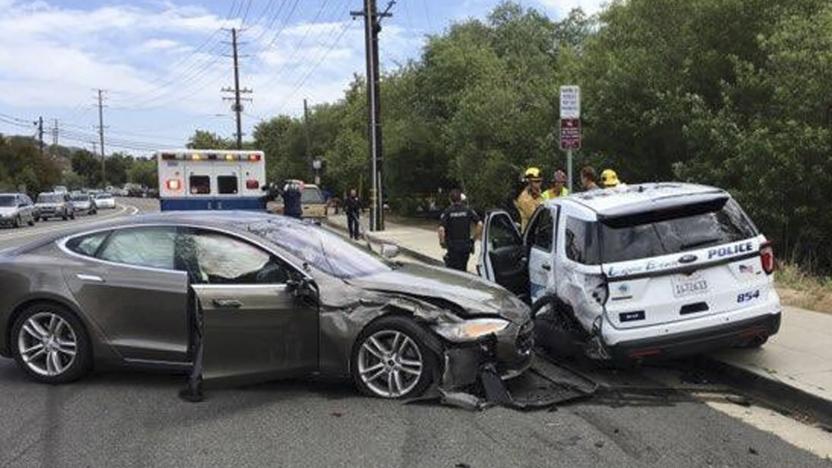
Bosch will use tiny explosions to make EVs safer in a crash
Electric vehicles have obvious benefits, but they also pose new risks. In the event of a crash, there's a chance that damaged wiring could allow current to leak from the EV's battery into the metal frame, posing a risk to occupants, rescue workers and first responders. Electric vehicles automatically turn off when a crash is detected, but to go a step further, Bosch has created an explosive device that automatically cuts off the high-voltage battery.
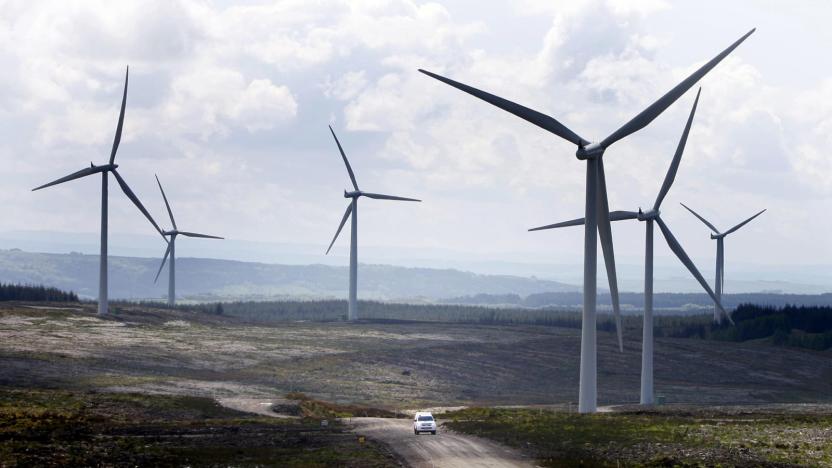
Scotland will build a massive battery to store excess wind power
UK energy supplier Scottish Power plans to launch a massive battery-storage system to capture renewable power from its 214 wind turbines. The 50 megawatt lithium-ion battery will allow Scottish Power to store energy when wind speeds are high and release it when they're low. According to The Guardian, this is the UK's most ambitious energy storage project to-date, and it will take the UK one step closer to reaching a net zero carbon economy.

US bans cargo shipments of lithium-ion batteries on passenger planes
The US government just added a new wrinkle to receiving lithium-ion batteries. The Department of Transportation and the FAA have issued an interim rule banning the transport of lithium-ion batteries and cells as cargo aboard passenger flights. It also demands that batteries aboard cargo aircraft carry no more than a 30 percent charge. You can still carry devices (including spare batteries) on your trips in most cases, but companies can't just stuff a passel of battery packs into an airliner's hold.
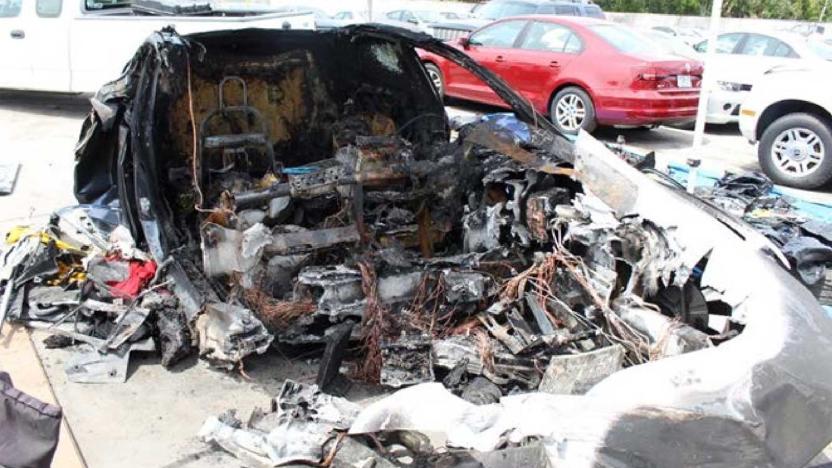
NTSB: Model S battery caught fire twice after Florida crash
It's not unheard of for cars to catch fire in a crash, but there are now instances of Tesla cars' batteries reigniting well after the fact. As part of a preliminary report on a Model S crash in Fort Lauderdale, Florida, NTSB investigators revealed that a piece of the EV's lithium-ion pack reignited twice despite firefighters dousing it with water and foam. It first reignited when crews were removing the car from the crash scene, and again when it arrived at a storage yard.
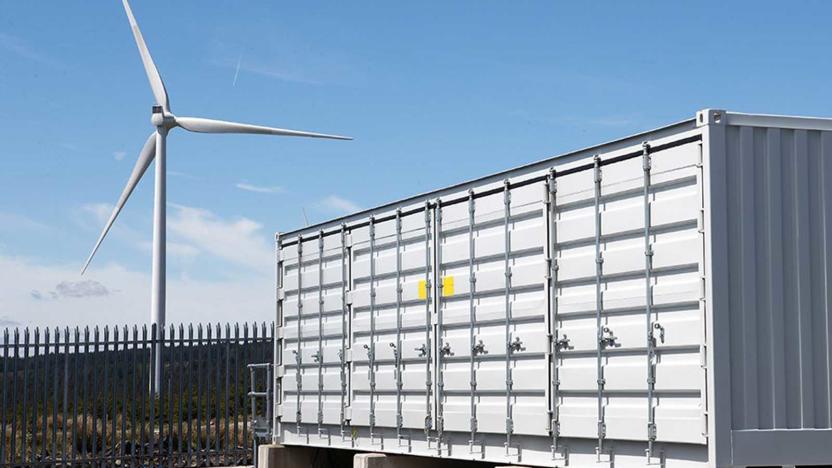
BMW i3 batteries provide energy storage for UK wind farm
The UK is now home to one of the largest energy storage projects using EV batteries. Vattenfall has connected a total of 500 BMW i3 batteries to the Pen y Cymoedd onshore wind farm in Wales, creating the biggest co-located installation in the UK. The add-on (housed in six containers like the one above) will help provide a more reliable source of renewable energy -- it'll provide consistent, readily available power.
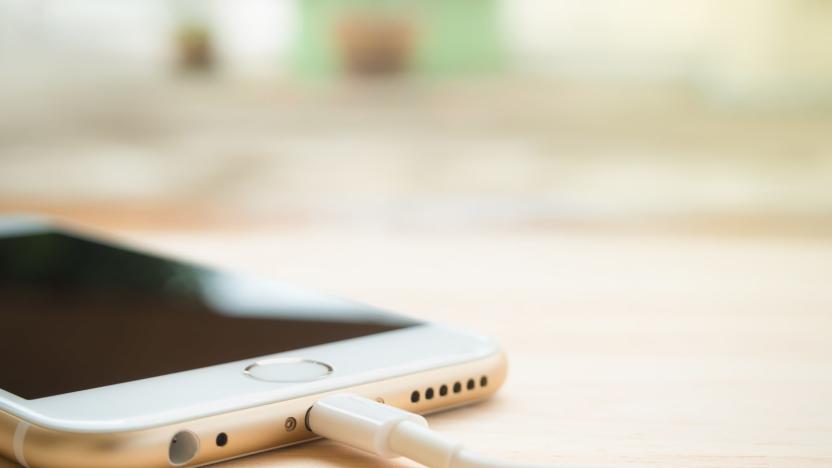
Apple may offer rebates on full-price battery replacements
In early January, Senator John Thune's office sent Apple a letter regarding the company's practice of slowing down iPhones when batteries start showing their age. The letter asked if Apple had thought about replacing batteries for free (instead of the company's plan to offer reduced-price $29 replacements). The senator also asked if Apple had notified customers of the slowdown "feature," and if older iPhones had seen similar strategies. Apple has responded to Thune with its own letter, thanking him for his inquiry.

HP recalls laptop batteries due to overheating issues
If you've got an HP notebook or mobile workstation computer, you'll want to check out the latest battery recall from the company. Lithium-ion batteries for affected HP laptops were shipped between December 2015 and December 2017. There have been eight reports of the battery packs overheating, melting or charring, three of which include reports of $4,500 in property damage and one report of a first degree burn to a hand.

Water-based electrolytes promise safer phone batteries
It's hard to completely escape safety issues with lithium-ion batteries, in part due to the nature of the electrolytes that charge and release energy when ions shuttle between electrodes. They usually have to be made of easily combustible chemicals to muster enough power. However, that might not be a problem for much longer. Scientists have crafted a water-based electrolyte that's both considerably safer and manages enough voltage (4V) to be useful.
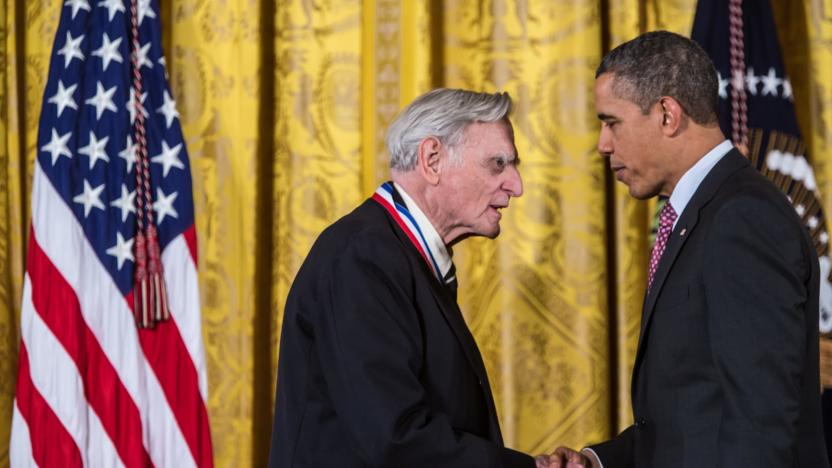
Lithium-ion creator helped develop a better battery technology
At 94 years old, John B. Goodenough isn't done changing the landscape of battery technology. The University of Texas at Austin professor who's widely credited for the invention of lithium-ion batteries has developed a better alternative. Goodenough, Cockrell School senior research fellow Maria Helena Braga and their team have created a low-cost solid state battery that's safer than lithium-ion. It stores thrice as much energy, which means more miles for electric vehicles in between charges. When you do need to charge, it can be done minutes instead of hours. Plus, it can withstand a greater number of charge and discharge cycles.
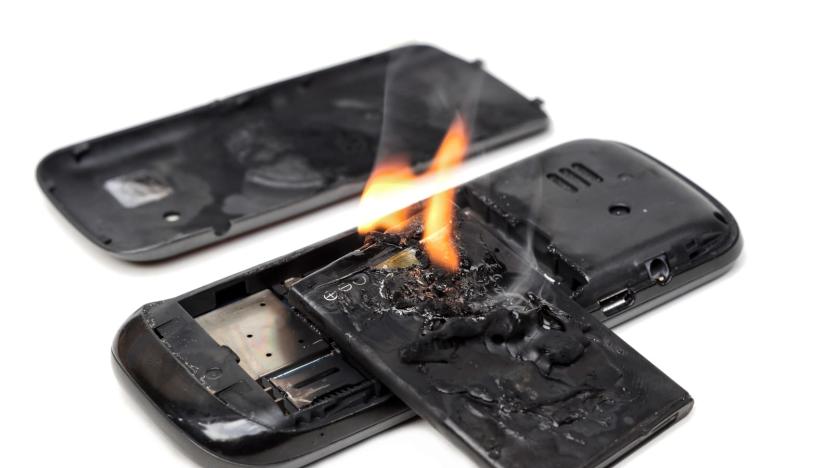
Batteries with built-in flame retardant could prevent fiery mishaps
One big problem with lithium-ion batteries is that they have the tendency to catch fire and blow up all kinds of gadgets like toys and phones. To solve that issue, a group of researchers from Stanford University created lithium-ion batteries with built-in fire extinguishers. They added a component called "triphenyl phosphate" to the plastic fibers of the part that keeps negative and positive electrodes separate. Triphenyl phosphate is a compound commonly used as a flame retardant for various electronics. If the battery's temperature reaches 150 degrees Celsius, the plastic fibers melt and release the chemical. Based on the researchers' tests, the method can stop batteries from burning up within 0.4 seconds.

Nissan may stop making its own electric car batteries
Nissan has long made its own electric car batteries thanks to Automotive Energy Supply, its team-up with NEC, but it appears to be having second thoughts. Sources speaking to both Nikkei and Reuters understand that Nissan plans to sell its controlling stake in AES, with NEC likely following suit. It'd just be less expensive to buy batteries from an outside supplier, according to tipsters. While it's not certain who would snap up the business, the car maker is supposedly in talks with both Panasonic and "overseas companies" that include Chinese firms.
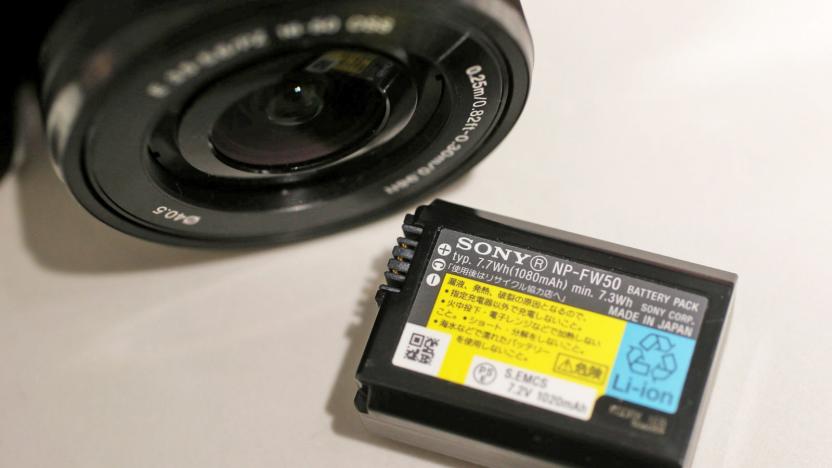
Lithium-ion pioneer Sony is selling its battery arm
Sony is planning to sell its battery division to Murata, a Japanese firm that makes a diverse variety of products like wireless components and robots. Sony started the battery business in 1975 and was the first company to commercialize lithium-ion batteries back in 1991. The electronics giant has been selling off core businesses and assets in an effort to return to profitability -- it recently unloaded its VAIO PC division, New York and Tokyo Headquarters, and Sony Online Entertainment game division. It also split off its sensor and TV businesses into separate companies.

Scientists use battery tech to harvest energy from movement
The idea of getting free energy from activities we do every day, like walking, has proven to be a pipe dream -- not that companies haven't tried. However, MIT scientists have tapped a new way to generate energy from bending that could actually make it feasible. Rather than using mechanical piezoelectric devices, the team developed new materials based on electrochemical, battery-like technology. When bent back and forth, they generated alternating current power with a surprising amount of efficiency, meaning you could one day tap your own kinetic energy to power devices.
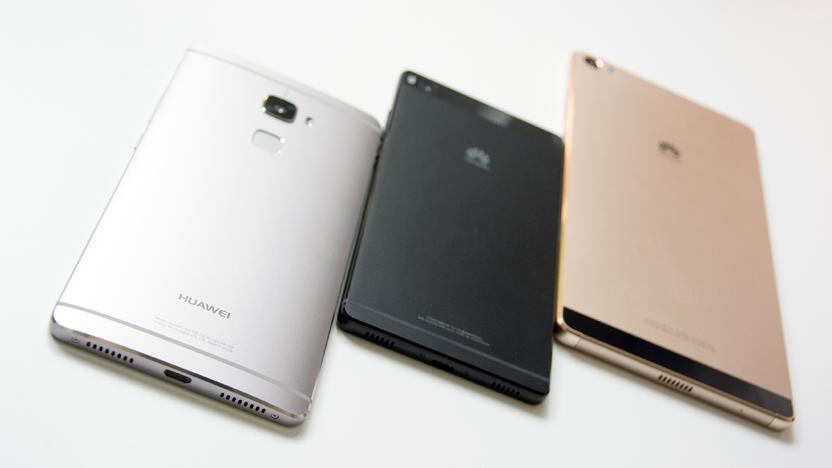
Huawei can quick-charge your phone without hurting its battery
That fast-charging smartphone you just bought has a dirty secret: more likely than not, it's reducing the lifespan or capacity of the battery to get that breakneck speed. Huawei doesn't think you should have to compromise, though. It just showed off a lithium-ion battery whose graphite-coated anode (where current flows) allows for very quick charging without hurting either capacity or long-term longevity. How quick? With a 3,000mAh of the sort you'd find in a larger phone, Huawei can give you a 48 percent charge in just 5 minutes. Yes, you could have enough power for an evening out in the time it takes to change out of your work clothes. There's an even faster prototype that reaches 68 percent in 2 minutes, although its 600mAh capacity isn't practical at its size.

FAA: Don't pack lithium batteries in your checked bag
If you've been packing extra lithium batteries in your checked bag before a flight, you might want to avoid doing so in the future. The FAA warns that storing those batteries in luggage that'll travel in the cargo hold can "present a risk of both igniting and fueling fires." The agency wants airlines to prohibit the practice and to remind travelers at check-in not to stow extras in a checked suitcase. Worried about running out of juice for that toothbrush or point-and-shoot camera? You might want to wait until you land to pick up more batteries. [Image credit: Scott Olson/Getty Images]

Nano-sized 'yolks' should lead to longer-lasting batteries
Those eggs you might have had for breakfast? They're not just food -- they may be the key to longer-running batteries in your devices. Scientists at MIT and Tsinghua University have developed a nanoparticle battery electrode whose egg-like design is built to last. Their invention, which houses a shape-changing aluminum "yolk" in a titanium dioxide cell, can go through charging cycles without degrading like the graphite electrodes in conventional power packs. That could improve not only the overall longevity of the battery, but also its capacity and maximum power. You'd have gadgets that not only hold out for longer between charges, but don't need to be replaced quite so often under heavy use.






